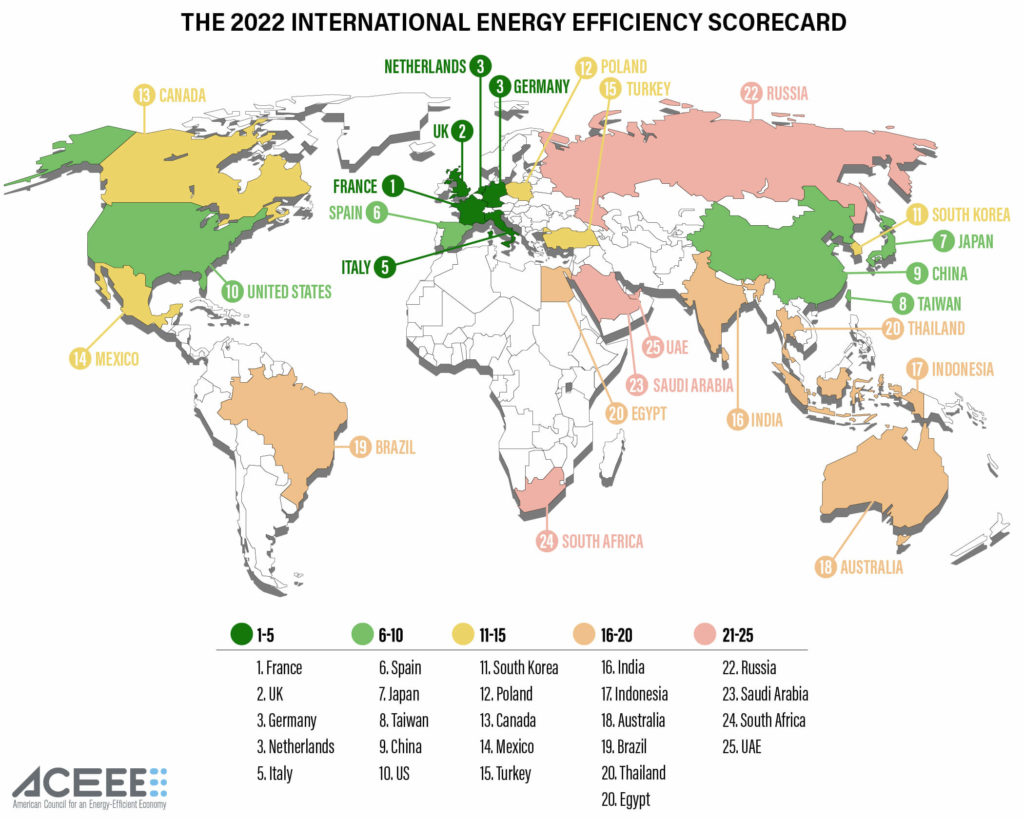Is the US the most energy efficient country?

Energy efficiency has become an increasingly important topic in today's world, as countries strive to reduce their carbon emissions and combat climate change. One country that often comes to mind when discussing energy efficiency is the United States. In this article, we will explore whether the US is indeed the most energy efficient country, examining various factors, initiatives, and case studies to gain a comprehensive understanding of the country's standing in this global race.
Understanding Energy Efficiency
Before delving into the comparison, it is crucial to grasp the concept of energy efficiency. Energy efficiency refers to the ability to accomplish a specific task or function while using the least amount of energy possible. This can be achieved through various means, such as improving technology, optimizing processes, and adopting sustainable practices.
Factors Affecting Energy Efficiency
Several factors influence a country's energy efficiency performance. These include government policies and regulations, investment in clean energy infrastructure, public awareness and education, technological advancements, and cultural attitudes towards energy consumption and conservation.
Comparing Energy Efficiency Metrics
When comparing energy efficiency across countries, various metrics come into play. These include energy intensity, which measures the amount of energy used per unit of GDP, and energy consumption per capita, which examines the average energy usage by individuals in a country. Additionally, the Energy Efficiency Index provides a comprehensive assessment of a country's energy efficiency performance by considering multiple factors.
Energy Efficiency Initiatives in the US
The United States has been actively involved in promoting energy efficiency through numerous initiatives. These include the establishment of energy efficiency standards for appliances, the implementation of energy-efficient building codes, and the promotion of renewable energy sources. Additionally, the US government has incentivized energy efficiency improvements through tax credits and grants.
Challenges and Limitations
Despite its efforts, the US faces several challenges and limitations in achieving optimal energy efficiency. These include the vast size and complexity of the country's energy infrastructure, the high energy consumption patterns, and the political and economic obstacles that hinder the implementation of effective energy efficiency measures.
Case Studies: Energy Efficiency Leaders
Examining successful case studies can provide insights into energy efficiency leaders around the world. Countries such as Germany, Denmark, and Japan have consistently ranked high in energy efficiency indices, showcasing innovative policies, advanced technologies, and a strong commitment to sustainability.
Future Outlook and Potential
Looking ahead, the United States has significant potential to further enhance its energy efficiency performance. Continued investment in renewable energy, the adoption of smart grid technologies, and increased public awareness and participation can contribute to a more energy-efficient future for the country.
Conclusion
While the US has made substantial strides in energy efficiency, claiming the title of the most energy efficient country remains a complex matter. Factors such as the size of the country, its energy consumption patterns, and the effectiveness of policies and initiatives all play a role. However, the US has the opportunity to learn from global leaders and leverage its resources to continue improving energy efficiency and contribute to a sustainable future.

Leave a Reply